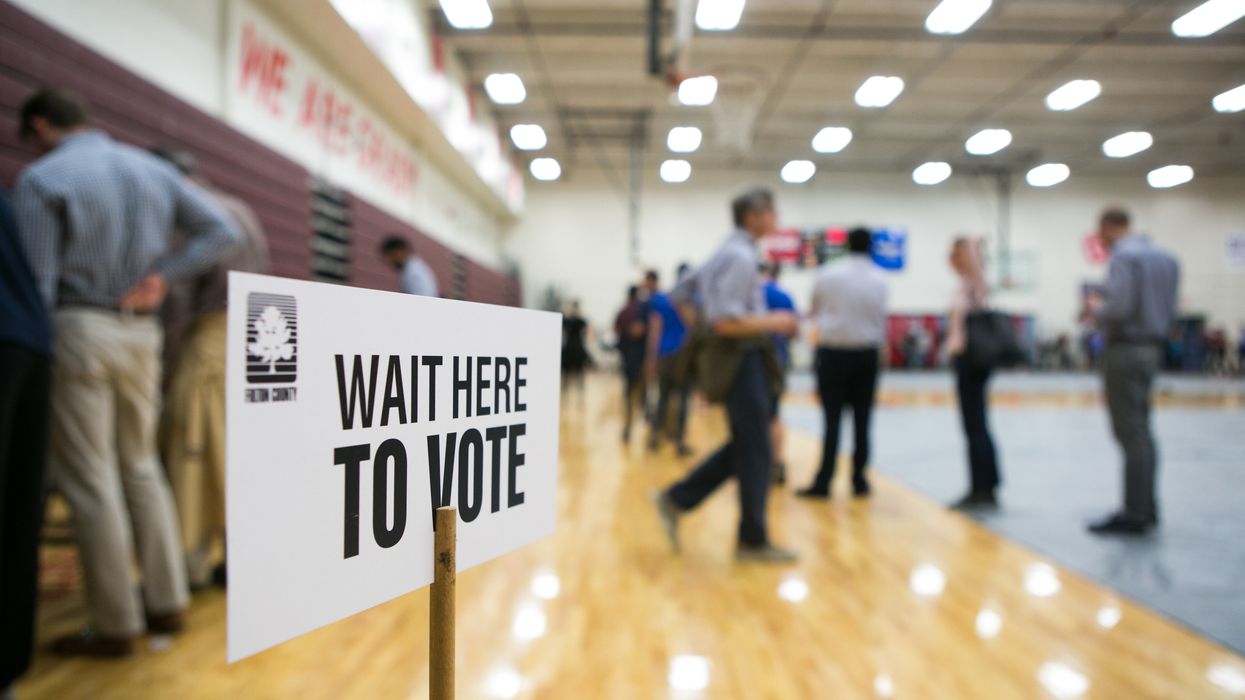Voters elect more than 7,000 state legislators across the United States. In a system like ours, where elections are run by individual states, that means legislators have immense power to determine voting procedures and shape how elections are administered. When they serve in state legislatures, election deniers can leverage this power to erode our democracy — and do so outside the spotlight of national politics.
We have created a resource identifying the election deniers serving as legislators in seven states — Arizona, Georgia, Michigan, Nevada, New Mexico, Pennsylvania, and Wisconsin — using data collected by States United Action and the McCourtney Institute for Democracy. These seven states were the focal points of the effort to overturn the 2020 presidential election. As a result, they also became centers of the election denier movement, and hotbeds of election lies and misinformation.
In total, we found that 201 sitting legislators in these seven states are election deniers.
Understanding the threat
In some legislatures, election deniers are a substantial political force: They make up a third of the Arizona Legislature and nearly half of the Pennsylvania Senate. In other states, election deniers represent a much smaller share of the legislature. But even in small numbers, election deniers can have outsized impact. Some serve in leadership positions. Others sit on committees that can introduce, shape, suppress, or kill election-related bills.
Regardless of the positions they hold in their respective legislatures, election deniers in recent years have introduced or cosponsored numerous bills that would add barriers to voting, enable investigations of voters, promote election conspiracy theories, make it harder for nonpartisan election officials to do their jobs, or otherwise interfere with the routine functioning of elections.
In Arizona in 2023, an election denier sponsored a bill that would have allowed for full hand counts of ballots, which subject election results to human error and fatigue. Another offered a bill that would make ballot images and voters’ personal information public. In Pennsylvania, election deniers sponsored and cosponsored a bill requiring the state to create a hotline for election fraud, which is practically nonexistent. In Wisconsin, seven election deniers cosponsored a constitutional amendment to restrict funding for election offices by banning donations. These are just a few examples of many.
And even when bills like these fail, they erode public confidence in elections and allow election disinformation to spread.
Some election deniers have taken their efforts even further. After the 2020 election, state legislators were among those who supported President Donald Trump’s attempt to overrule the decision of the voters and remain in power. And three election deniers who are now state legislators joined the effort outright by serving as fake electors — signing their names to official-looking documents falsely claiming that Trump was the rightful winner in their states.
This combined record shows that election deniers in state legislatures are a threat to current and future elections, either by their actions as legislators, by promoting disinformation and conspiracy theories, or by their demonstrated failure to respect legitimate election results.



















Trump & Hegseth gave Mark Kelly a huge 2028 gift